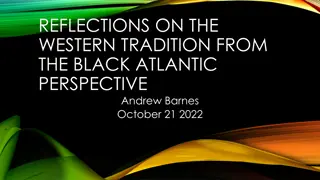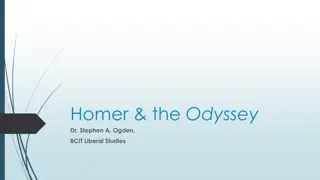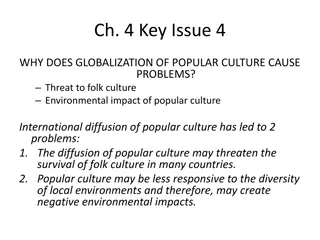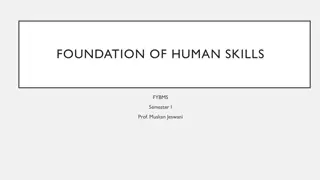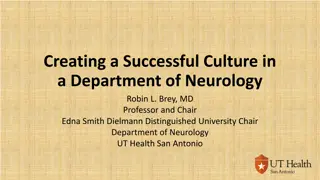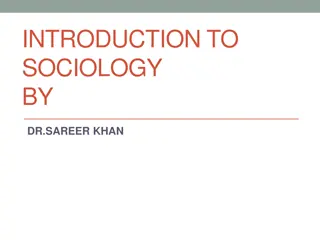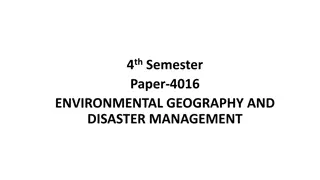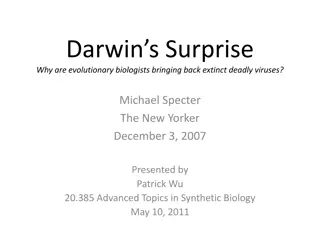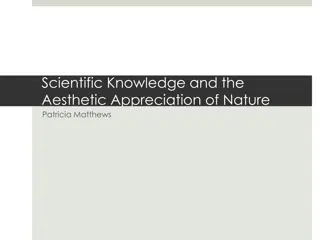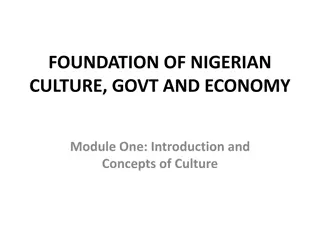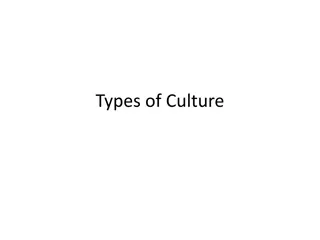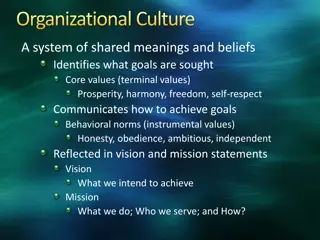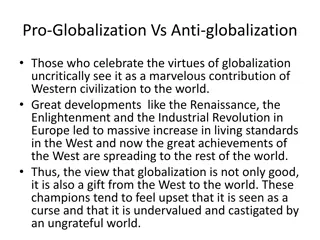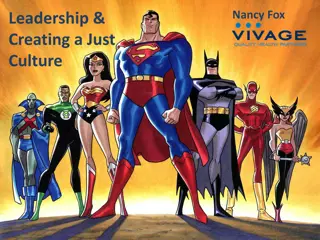Exploring the Evolution of Human Nature in Western Culture
Delve into the dynamic construction of human nature throughout history, from the Renaissance to modern times, questioning its transhistorical or relative essence. Discover how societal values shape our perceptions of human behavior and identity. Reflect on changing views of human nature in the face of historical events like wars and atrocities, pondering today's assumptions grounded in biological frameworks and evolutionary psychology.
Download Presentation

Please find below an Image/Link to download the presentation.
The content on the website is provided AS IS for your information and personal use only. It may not be sold, licensed, or shared on other websites without obtaining consent from the author. Download presentation by click this link. If you encounter any issues during the download, it is possible that the publisher has removed the file from their server.
E N D
Presentation Transcript
Being Human: Human Nature from the Renaissance to Freud (HI281) Dr Claudia Stein (claudia.stein@warwick.ac.uk, H3.12 All lectures and seminars will be online in term I. Office hours see module website or department website
Assessment Second Year Early modern options 1 x 1500 word Essay (10%) 1 x 3000 word Essay (40%) 7 day take-home assessment (40%) Oral Participation/engagement (10%) Check for deadlines: https://warwick.ac.uk/fac/arts/history/students/undergraduate/a ssess-coursework/#deadlines
Human Nature Definitions? OED The inherent character or nature of human beings; the sum of traits, characteristics, and predispositions attributed to or associated with human beings What does that include? How human beings think and feel, our value systems and moral codes, how we behave and interact with fellow humans
Have our views on human nature changed since the turn of the last century? These are knowing, anti-heroic times Where previous centuries saw Man as, to paraphrase Hamlet, noble in reason, infinite in faculties, in action like an angel, in apprehension like a God, today we see a much baser being, whose actions have covered him in wretchedness and shame. Following a century despoiled by two world wars and the Holocaust, Hiroshima and ethnic cleansing, by gulags and concentration camps, the dignity of Man appears at best ironic, at worst dangerously self-deluded . Kenan Malik, Man, Beast and Zombie: What Science Can and Cannot Tell us about Human Nature (London, 2002), 4.
Is human nature transhistorical or relative? Our argument: human nature is not a thing , but rather it is a construct, it is socio-culturally constructed. At different moments in time, being human has been constructed and interpreted differently according to dominant values, norms, and systems of knowledge. And this module investigates those differences over time in Western culture and how they link to wider social, cultural and economic contexts. Human nature is relative ; it cannot and won t be discovered at some point in the future
What are todays assumptions about human nature? The biological framework: proponents of this view - evolutionary biologists, evolutionary psychologists and cognitive neuroscientists. Famous examples include O.E. Wilson and Richard Dawkins. How does the mind work, and beyond that does it work in such a way and not another, and from there two considerations together, what is is mans ultimate nature. We keep returning to this subject with a sense of hesitance and even dread. For the brain is a machine of ten million cells.... (O.E. Wilson, On Human Nature, p. 1) They put forward the conviction that the distinctive aspects of being human can be explained in purely naturalistic terms. In this framework what it means to be human can be reduced to what it means to be a biological species. Sociobiology the belief that that human sentiment and behaviour is shaped entirely by the desire to maximise the spread of one s genes. So what we do, think, believe and feel is completely determined by our genetic set up. All human knowledge, they argue, must be based on evolutionary biology.
Is scientific knowledge about human nature more objective than other forms of knowledge? The interpretations scientists place on their data are often shaped by cultural attitudes, needs and possibilities. So scientific knowledge about human nature is always produced in a specific culture at a specific moment in time and as a result, reflects many of the values of the culture in which it is practiced. People bring a prior view of what sort of being a human is to bear on their descriptions of people. There are no neutral descriptions. We need a historical and philosophical perspective in order to bring into the open the origins and implications of our self-descriptions . (Roger Smith, p4.) Our culture assumes certain social norms about men and women and then explains them as traits fixed and rooted in an unaltered biological core. What this course seeks to demonstrate is that the human traits taken to be fixed and universal, are of course nothing of the sort.
If there are biological capacities in common among people, and it is an almost empty truism to accept this, it is not possible to describe these capacities independently of their expression in particular forms of cultural life. The capacities are embedded in the way life is lived; they do not exist independently of that life As the anthropologist Clifford Geertz once observed, 'there is no such thing as a human nature independent of culture . (Roger Smith, p.35) The genetic proximity of Man and ape is without question. There are, however, different ways of interpreting this closeness. One could say, given the tiny genetic difference, that our humanity does not lie in our genes. Or one could argue that we are little more than another ape, and that the roots of our behavior must lie in our animal, and in particular ape, ancestry. In adopting the second argument, Darwinists are doing more than taking an objective look at the human condition. They are interpreting the scientific data through a particular philosophical lens. They are projecting their vision of what it means to be human on to the data. (Kenan Malik, p.21)
How did our current model of Human Nature become a dominant belief system? The precise social and economic context in which dominant belief systems come to take hold is absolutely key. What kind of human being does the biological model construct? Key traits? In what precise socio-economic context did these ideas flourish? Neoliberalism since the 1970s
Why is history vital when we think about human nature? If human nature is entirely dependent on the specific culture in which it is thought and talked about, human nature is entirely historical, not universal. The claims we make today are also historical; we are historical beings
Evolutionary psychologists have suggested, for instance, that revulsion at the practice of slavery is part of human nature because we have a natural aversion to being humiliated and imprisoned For most of human history, though, slavery was regarded as natural as individual freedom is today. Only in the past two hundred years have we begun to view the practice with revulsion. We have done so partly because of the political ideas generated by the Enlightenment, partly because of the changing economic needs of capitalism, and partly because of the social struggles of the enslaved and the oppressed. Certainly, today we view opposition to slavery as an essential aspect of our humanity, and see those who advocate slavery as in some way inhuman - but it's a belief that we have arrived at historically, not naturally. To understand human values such as the belief in equality we need to explore not so much human psychology as human history . Kenan Malik, what science can and cannot tell us about human nature in Human Nature: Fact and Fiction (2006), chapter 9.


